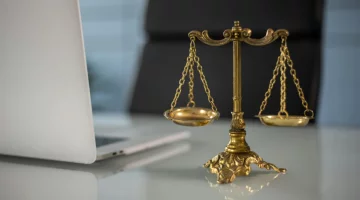What Evidence is Needed to Overturn a VA Disability Denial?
Houston, Texas, is a city built on strength, perseverance, and service. With one of the largest veteran populations in the country, it stands as a proud home to those who have dedicated their lives to protecting this nation. Yet, despite their sacrifices, many Houston-area veterans face an uphill battle when seeking the VA disability benefits they rightfully deserve. The claims process can be frustratingly complex, with many veterans receiving denials due to missing medical evidence, service connection disputes, or bureaucratic red tape. A denial can feel like a betrayal—especially when dealing with life-altering injuries or service-related conditions that make it difficult to work or live comfortably.
The good news? Denial isn’t the final word. Veterans have the right to appeal, strengthen their case with compelling evidence, and fight for the benefits they earned through service. However, successfully overturning a VA denial requires strategy, legal expertise, and persistence. The process can be overwhelming, but you don’t have to go through it alone. You can fight your VA denial with Marc Whitehead & Associates, a team dedicated to advocating for veterans and ensuring they receive the support they deserve. With the right legal guidance, you can take the next step toward justice and financial security.
Navigating the Reasons for Denial
Understanding why a claim was initially denied is paramount before collecting any new evidence. When issuing a denial, the VA provides a lengthy reasoning for it, which often includes insufficient medical records, no link to duty service, or inconsistencies in the documentation itself. If we know the specific reasons, we can target those areas directly and strengthen the overall argument.
Medical Records (MR) and Documentation
Obtaining medical records from your doctor is an essential component of any disability file. Detailed medical records from treating physicians can support its existence and severity. You will want to make sure that all medical records are up-to-date and that the notes from physicians and clinicians are thorough. Moreover, seeing a nexus letter from a doctor will help create evidence of a relationship between the service and the disability.
Service Records
Service records are also crucial in overcoming a denial. These documents can provide evidence of a veteran's story regarding how he or she was injured. Information about the places worked, jobs held, and events experienced while serving can all help strengthen a claim. Veterans bolster the case that their condition is service-related by citing particular events in service records.
Investigating Appeals to Non-expert Authority
Personal experiences provide another form of proof. Witness statements are powerful pieces of testimony, and family members, fellow service members, or friends can attest to the effects of a veteran’s disability that they witnessed first-hand. These include personal accounts of how the disease impacts everyday life, providing support for such claims. Veterans should prompt potential witnesses to add details of such instances and their observations to strengthen the credibility and efficacy of their statements.
Independent Medical Opinions
Occasionally, an independent medical opinion (IMO) can be the difference between winning and losing an appeal. An IMO consists of an assessment by a doctor who is not associated with the VA reviewing the medical records. It can provide an unbiased, neutral view of the veteran's condition and how it is related to their service. To provide an opinion on the disability and the validity of the claim, the medical professional needs to be credible and well-respected in their field of practice.
Psychological Evaluations
Psychological evaluations may be a piece of critical evidence for mental health conditions. Such assessments may offer a comprehensive understanding of how military service impacted a veteran psychologically. Evaluations by licensed psychologists or psychiatrists can help prove claims involving PTSD, depression, anxiety, or other mental health disorders. Providing comprehensive psychological evaluations adds to the validity of the appeal.
Consistency and Accuracy
An appeal is bound to fail if the information provided relates to an inconsistent or inaccurate scenario. This is why it is so important that all evidence submitted is consistent with the veteran's description of events and medical history. Inconsistencies may result in additional delays, and in some cases, the appeal can be denied altogether. Reviewing all documents for consistency and accuracy before submission may save a lot of issues in the future and provide the required strength to the case.
The Process of Organizing and Submitting Evidence
An appeal will not succeed without the proper organizing of the available evidence. Veterans should organize their documents in sections as per the type mentioned. This makes it easier for VA decision-makers to review all the presented materials. It is also imperative to not delay the appeal process and ensure that the evidence is submitted on time and within the prescribed period.
Seeking Professional Help
For most veterans, going through the appeals process on their own can be quite a nightmare. Professional help, including Veterans Service Organizations (VSOs) or private attorneys, proves invaluable in such situations. They know what it takes to win an appeal and how best to present your evidence for a favorable decision.
Conclusion
Successfully overturning a VA disability rejection is not as simple as telling the VA they need to prove the denial was warranted; it involves all of the factors mentioned previously, but it will ultimately rest on convincing evidence. Veterans can create a strong appeal by knowing the reasons for the denial and presenting all the available documentation that supports their appeal. From medical records and service documents to personal testimonies and expert opinions, these crucial pieces of evidence help build a stronger case.
More to Read:
Previous Posts:



